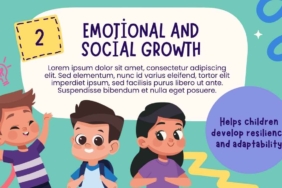In an era marked by unprecedented challenges, global cooperation has emerged as a crucial element for tackling pressing issues that no nation can solve alone. From climate change to pandemics, the need for collaborative efforts among countries is more essential now than ever.
What Are the Current Global Challenges?
Today, the world is facing a myriad of challenges that demand international collaboration:
- Climate Change: With rising temperatures and erratic weather patterns, the impact of climate change is felt across borders.
- Health Crises: The ongoing COVID-19 pandemic has shown us that health issues can quickly become global emergencies.
- Economic Instability: Global markets are interlinked, and economic downturns in one part of the world can lead to repercussions everywhere.
- Political Conflicts: Geopolitical tensions can escalate into conflicts that threaten global security and stability.
Why Is Global Cooperation Important?
Global cooperation enables nations to pool resources, share knowledge, and collaborate on innovative solutions. Here are some reasons why cooperation is essential:
- Resource Sharing: Some countries have natural resources that can aid others in their development.
- Knowledge Transfer: Collaborative research and technological exchange can lead to improved health outcomes and environmental solutions.
- Crisis Mitigation: Working together allows countries to tackle crises more effectively, whether they are health-related, environmental, or economic.
How Is Global Cooperation Being Achieved?
Several international organizations and treaties have been established to facilitate global cooperation:
- The United Nations (UN): A platform for discussions and solutions on a variety of global issues.
- The World Health Organization (WHO): Coordinates efforts in public health, especially evident during the COVID-19 pandemic.
- The Paris Agreement: An international treaty focused on combating climate change through cooperative action.
Where Do We Go From Here?
As nations continue to address pressing global issues, understanding the importance of cooperation is critical for the future. Initiatives aimed at strengthening international ties are vital in promoting peace, stability, and sustainability.
Conclusion
In conclusion, global cooperation stands as a cornerstone in addressing today’s significant challenges. The collaborative approach fosters unity and mutual support among nations, enabling everyone to work towards shared goals. As we navigate this complex landscape, the emphasis on cooperation cannot be overstated—it is essential for a brighter, sustainable future.














